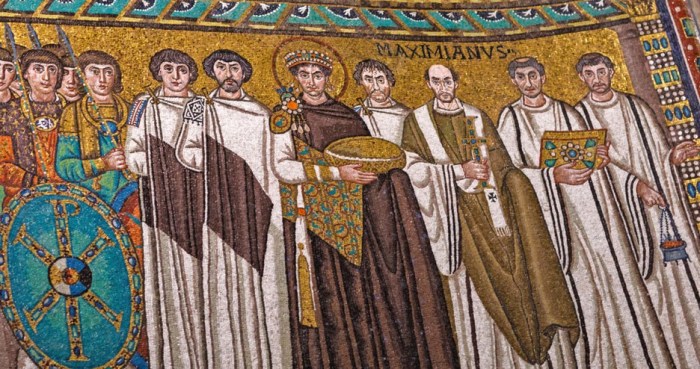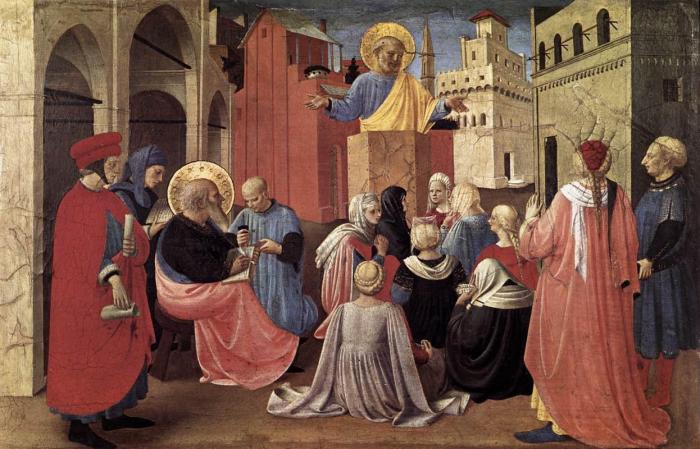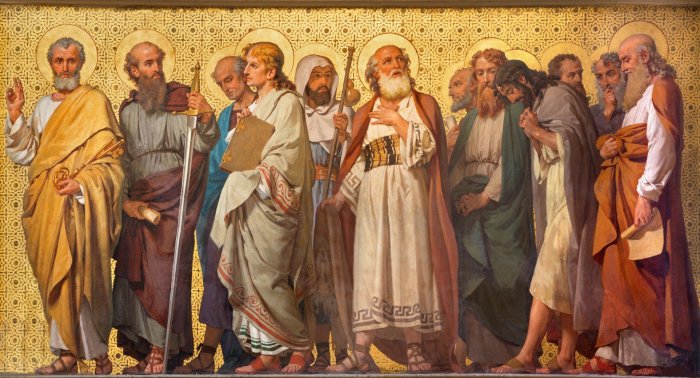Embarking on an exploration of the early Christian church crossword clue, we delve into the rich history and profound beliefs that shaped the foundation of Christianity. From its hierarchical structure to its core tenets and societal interactions, this inquiry promises to illuminate the enigmatic origins of this influential institution.
The early Christian church emerged as a transformative force, leaving an enduring legacy that continues to resonate today. Its hierarchical structure, beliefs, practices, and writings played a pivotal role in shaping its operations and influence within Roman society. This exploration will unravel the intricate tapestry of the early Christian church, offering a comprehensive understanding of its origins and impact.
Early Christian Church Structure

The early Christian church exhibited a hierarchical structure, with different levels of leadership and responsibilities.
Bishops
- Bishops were the highest-ranking leaders in the early church.
- They oversaw the administration and spiritual guidance of their respective dioceses (geographic regions).
- Bishops possessed the authority to ordain priests and deacons, and they presided over important церковные councils.
Priests
- Priests were responsible for the day-to-day operation of local congregations.
- They conducted religious services, preached sermons, and provided pastoral care to the community.
- Priests were ordained by bishops and served under their authority.
Deacons
- Deacons were the lowest-ranking leaders in the early church.
- They assisted priests with practical tasks, such as distributing food to the poor and caring for the sick.
- Deacons were also responsible for assisting with baptisms and other церковные rituals.
This hierarchical structure provided a clear chain of command and authority within the early Christian church, ensuring its efficient operation and the maintenance of doctrinal unity.
Christian Beliefs and Practices

The early Christian church was founded on a set of core beliefs that shaped their worship practices and daily lives. These beliefs included the following:
1. Monotheism:Christians believed in one God, the creator of all things.
2. Jesus Christ:Christians believed that Jesus Christ was the Son of God and the Messiah who had come to save humanity from sin.
3. Resurrection:Christians believed that Jesus Christ had risen from the dead, defeating death and offering eternal life to those who believed in him.
4. Salvation:Christians believed that salvation from sin and eternal death was available only through faith in Jesus Christ.
5. Holy Spirit:Christians believed in the Holy Spirit, the third person of the Trinity, who indwells believers and guides them in their daily lives.
6. Love:Christians believed that love was the greatest commandment and that they should love God and their neighbors as themselves.
7. Forgiveness:Christians believed that God was merciful and forgiving and that they should forgive others as they had been forgiven.
Worship Practices, Early christian church crossword clue
The core beliefs of the early Christian church shaped their worship practices in several ways. First, their monotheism led them to worship only one God, rejecting the pagan practice of polytheism. Second, their belief in Jesus Christ as the Messiah led them to center their worship around him, celebrating his birth, death, and resurrection.
Third, their belief in the Holy Spirit led them to emphasize the importance of spiritual gifts and charismatic experiences in worship.
Sacraments and Rituals
Sacraments and rituals played a significant role in early Christian life. Sacraments were special ceremonies or actions that were believed to convey God’s grace to believers. The two sacraments that were most commonly practiced in the early church were baptism and the Eucharist (also known as Holy Communion).
Baptism was a rite of initiation into the Christian faith, symbolizing the washing away of sins and the reception of the Holy Spirit. The Eucharist was a ritual meal in which believers shared bread and wine, symbolizing the body and blood of Christ and their participation in his death and resurrection.
In addition to sacraments, the early Christian church also practiced a variety of other rituals, such as prayer, fasting, and anointing with oil. These rituals were believed to help believers grow in their faith and to experience God’s presence in their lives.
Church and Society
The early Christian church existed within the context of Roman society, which posed both challenges and opportunities for its growth and development. This relationship was complex and multifaceted, influenced by factors such as Roman law, social structure, and religious practices.
One of the significant challenges faced by Christians was persecution. The Roman Empire was largely polytheistic, and the worship of the emperor was seen as a sign of loyalty. Christians, who refused to participate in these practices, were often viewed as traitors and subjected to persecution.
This persecution took various forms, including imprisonment, torture, and execution.
Legal Status
The legal status of Christians in the Roman Empire was ambiguous and subject to change depending on the emperor’s attitude towards them. During periods of persecution, Christians were denied basic rights and protections afforded to Roman citizens. However, there were also periods of relative tolerance, when Christians were allowed to worship freely.
Social Stigma
In addition to legal persecution, Christians also faced social stigma and discrimination. They were often seen as outsiders and were excluded from certain social activities and privileges. This stigma made it difficult for Christians to integrate into Roman society and limited their opportunities for advancement.
Missionary Activity
Despite these challenges, the early Christian church also found opportunities to grow and spread its message within Roman society. The empire’s vast network of roads and waterways facilitated missionary activity, allowing Christians to travel and establish new communities throughout the empire.
Influence on Roman Society
The interactions between the early Christian church and Roman society had a profound impact on both. The church’s teachings and practices gradually influenced Roman culture, contributing to the development of new social and moral values. At the same time, the church was shaped by its interactions with Roman society, adapting its practices and beliefs to fit within the Roman context.
Early Christian Writings

The early Christian writings, including the New Testament and the writings of the Church Fathers, hold immense historical and theological significance. They provide invaluable insights into the beliefs, practices, and development of the early Christian Church.
New Testament
The New Testament, composed of 27 books, is a collection of writings that narrate the life and teachings of Jesus Christ, the foundation of Christian faith. It includes the four Gospels (Matthew, Mark, Luke, and John), which recount the life and ministry of Jesus; the Acts of the Apostles, which describes the spread of Christianity after Jesus’ resurrection; the Epistles, letters written by apostles and other early Christian leaders to various churches and individuals; and the Book of Revelation, an apocalyptic vision of the future.
Church Fathers
The Church Fathers were influential Christian theologians and writers who lived during the first centuries of Christianity. Their writings, known as patristic literature, played a crucial role in shaping Christian thought and doctrine. Some notable Church Fathers include:
- Ignatius of Antioch (c. 35-107): His letters emphasized the importance of unity and submission to church authority.
- Justin Martyr (c. 100-165): He defended Christianity against pagan attacks and wrote extensively on the relationship between faith and reason.
li>Irenaeus of Lyons (c. 130-202): His work “Against Heresies” refuted Gnostic teachings and articulated the concept of apostolic succession.
These early Christian writings not only provide historical documentation of the early Church but also continue to serve as sources of spiritual guidance, theological reflection, and ethical principles for Christians today.
Commonly Asked Questions: Early Christian Church Crossword Clue
What was the hierarchical structure of the early Christian church?
The early Christian church adopted a hierarchical structure with bishops, presbyters, and deacons holding positions of authority and responsibility.
What were the core beliefs of the early Christian church?
The early Christian church held core beliefs in the Trinity, the divinity of Jesus Christ, the resurrection, and the importance of faith and good works.
How did the early Christian church interact with Roman society?
The early Christian church faced both challenges and opportunities in the Roman Empire, navigating persecution, gaining converts, and gradually influencing societal norms.